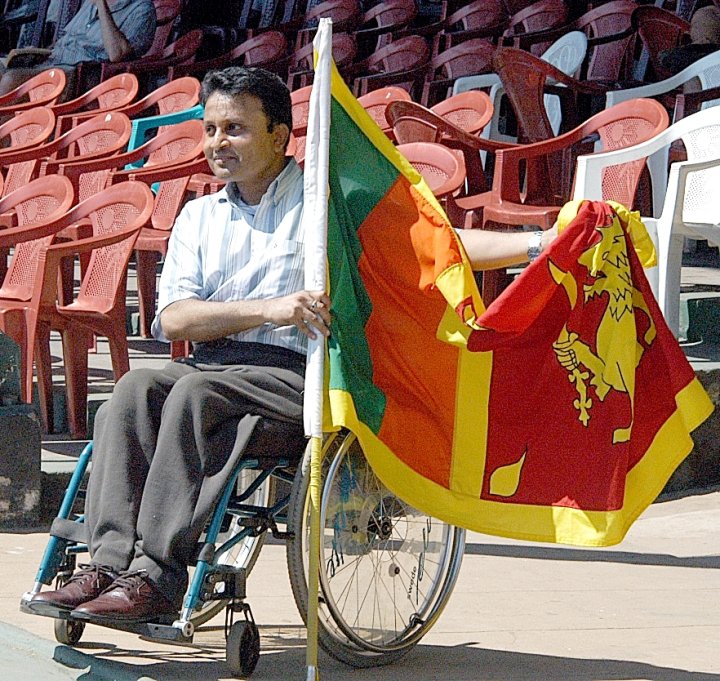Colombo, February 10 (newsin.asia): Hundreds of disabled and aged voters were unable to exercise their franchise in the local bodies elections in Sri Lanka on Saturday because there were no facilities for them or were barred from using facilities which they had brought with them.
“At the Lindsay School voting center in Bambalapitiya in Colombo, my grandmother could not vote because there were no facilities to take her wheelchair in,” complained Mrs. J.Hussain.
“In many places old people had to opt out of voting because they had to walk a long distance to reach the booth. No transport of any kind was allowed even for the aged,” she pointed out.
According to Dr.Ajith C.S.Perera, a disabled person in a wheelchair and a doughty campaigner for the rights of the disabled, two million of Sri Lanka’s 14.5 million eligible voters in Sri Lanka are physically dis-abled.

“An estimated 3 million people – (i.e.15% of our population), for different reasons, are with restricted mobility and/or impaired visually. A large percentage of them are young people – our life force,” Dr.Perera wrote in Sunday Times, recently.
“Furthermore, Sri Lanka has the fastest ageing populaton in the South Asian region with the over 65 years persons accounting for 17% of the population.”
“Voting is a fundamental right guaranteed to every Sri Lankan citizen. And many of the disabled or aged are not able to exercise this right because the system has no provision for such people,” Dr.Perera said.
“I am personally aware of many persons with debilitating ailments; persons with restricted mobility or visually impaired, the elderly or pregnant, who although very much desirous of casting their valuable votes, have been compelled to refrain from exercising this right, due to potential safety hazards or physical barriers either in approaching their polling stations or polling booths,” he said.
Giving a telling example, Dr. Perera said that the inmates of the Home for the Disabled in Mount Lavinia near Colombo have not been able to vote because their police station which is a leading private school in the area has no facilities for them.
The campaigner for the disabled’s rights further said that the Election Commission should not only provide the appropriate facilities but use the mass media to advertise them so that a good section of the population may exercise their fundamental right of franchise.



























































